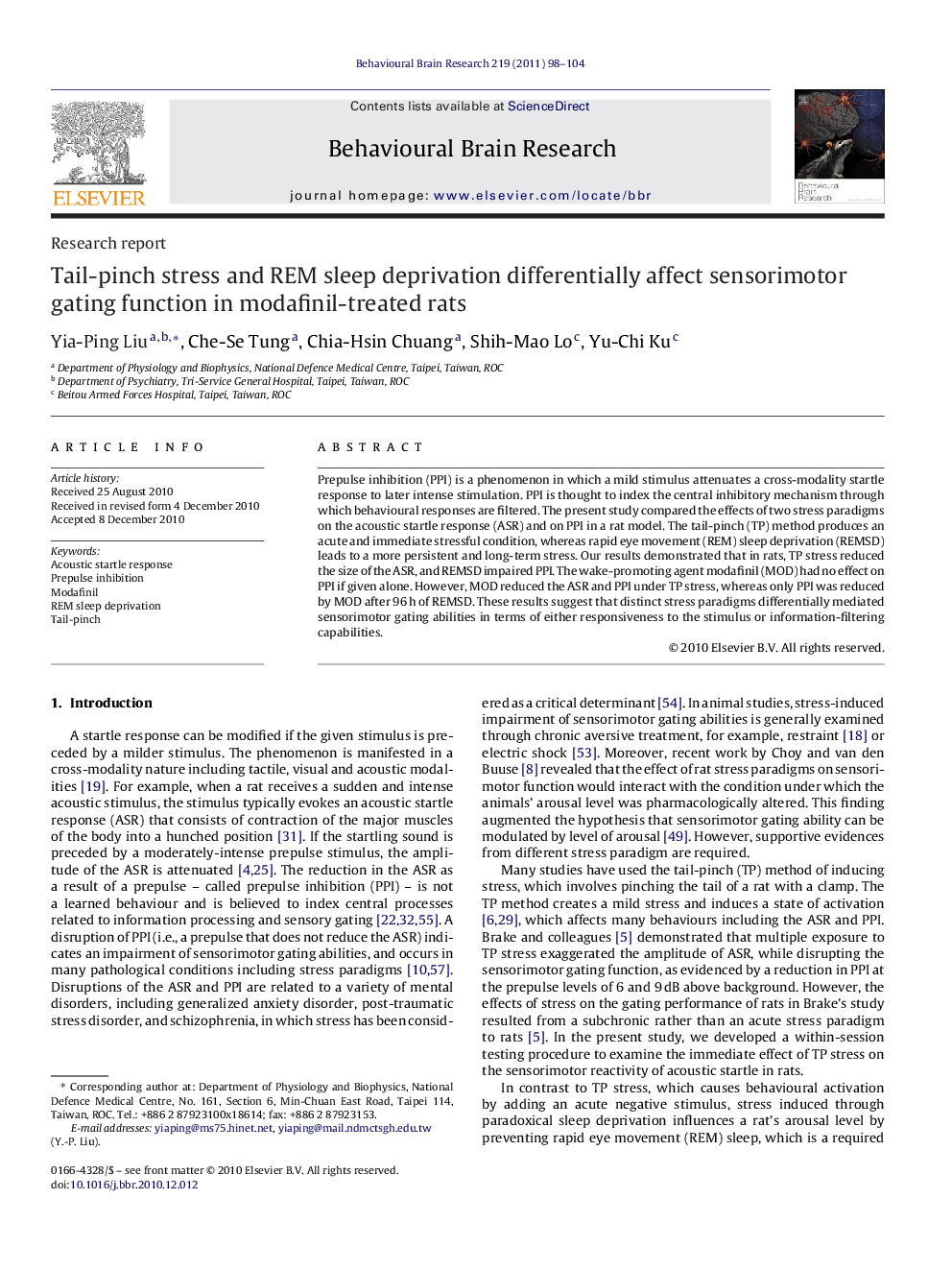| Article ID | Journal | Published Year | Pages | File Type |
|---|---|---|---|---|
| 6259850 | Behavioural Brain Research | 2011 | 7 Pages |
Prepulse inhibition (PPI) is a phenomenon in which a mild stimulus attenuates a cross-modality startle response to later intense stimulation. PPI is thought to index the central inhibitory mechanism through which behavioural responses are filtered. The present study compared the effects of two stress paradigms on the acoustic startle response (ASR) and on PPI in a rat model. The tail-pinch (TP) method produces an acute and immediate stressful condition, whereas rapid eye movement (REM) sleep deprivation (REMSD) leads to a more persistent and long-term stress. Our results demonstrated that in rats, TP stress reduced the size of the ASR, and REMSD impaired PPI. The wake-promoting agent modafinil (MOD) had no effect on PPI if given alone. However, MOD reduced the ASR and PPI under TP stress, whereas only PPI was reduced by MOD after 96Â h of REMSD. These results suggest that distinct stress paradigms differentially mediated sensorimotor gating abilities in terms of either responsiveness to the stimulus or information-filtering capabilities.
Research highlightsⶠDistinct stress paradigms mediate animal's sensory gating abilities differentially in either the responsiveness to the stimulus or the capability of information-filtering. ⶠThe wake-promoting agent MOD reduced the ASR and the PPI under tail-pinch stress. ⶠFollowing 96 h REMSD, it was only the PPI can be reduced by MOD.
